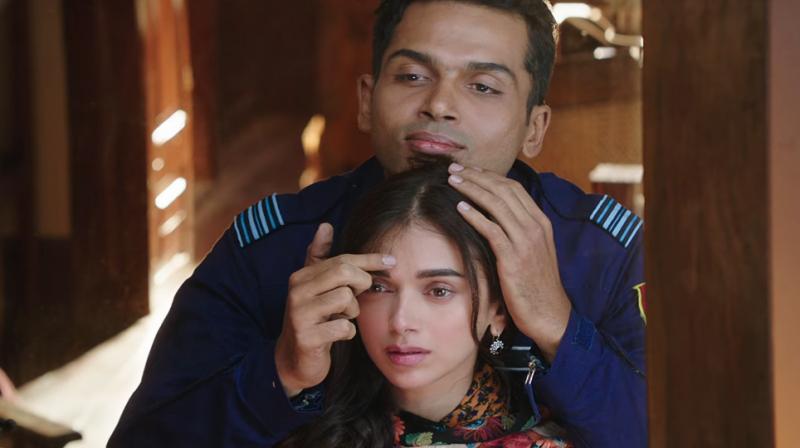Kaatru Veliyidai music review: Rahman of yore is back, for most parts

Mumbai: It’s been four days since Mani Ratnam and AR Rahman dropped their soundtrack for the former’s upcoming directorial, ‘Kaatru Veliyidai,’ out for public savouring.
Four days on, the album is still unravelling itself, as has been oft stated whilst personifying an ARR OST, to grating effect. But as repetitive as the phrase has come to be, it surprisingly still holds credence, much courtesy its creator’s enviable consistency.
‘Kaatru Veliyidai’ is not novel, innovative or sensational for that matter. What it is, however, is a piquant concoction of all the musical elements indigenous to Rahman. This one is truly for the fans, the old ones and new.
There’s a furiously persistent sense of Déjà vu throughout the soundtrack; each one reminding the listener of one of Rahman’s own earlier gems.
‘Nallai Allai’ starts off with an ambient melody that takes one back to ‘Mannipaaya’ from his universally acclaimed work for Gautham Menon’s ‘Vinnai Thaandi Varuvaaya’. The gorgeously crafted strings base might seem too good for the misleadingly insipid melody upon first listen. However Rahman’s decision to go for a melody that might seem ‘too simple’ for some, grows on you gradually. A lot of the credit must also go to Sathya Prakash and Chinmayi.
‘Azhagiye,’ which had been the first song to be released, is the quirkiest of the lot, starting off with a brief yet effective A Capella intro, only to be joined by an affably eager string set, augmenting Arjun Chandy, Haricharan and Jonita Gandhi’s dedicated vocal collective. The Punjabi interlude, alluding to the film’s pan-Indian cinemascape, might stick out, but blends in thanks to an otherwise cracker of a composition, which culminates in a euphorically harmonic crescendo.
‘Vaan,’ the film’s grand love ballad, has the quintessential romanticism of Rahman, reminding one of songs right from the evergreen ‘Ennavale’ to the relatively more recent ‘Sahara Pookkal’. The orchestration has the intricate hands of Rahman flowing wild all over it, with an infectious bass line running gleefully amok through the song. Shashaa Tirupati’s brand of singing has the kind of soulfulness that one has come to associate with the ever-so-dependable Shreya Ghoshal, but her effectiveness is such that you don’t miss the latter, ‘Vaan’ being the kind of song that would go to Shreya, on any other day.
‘Tango Kelaayo,’ possibly the weakest song of the lot, albeit a competent composition, is eerily reminiscent of ARR’s superlatively genius yet gruesomely underappreciated ‘Hawa Hawa’ from ‘Rockstar,’ thanks to the parallels derived between their shared Latino skeleton and orchestral structure. However, the song suffers from the clamouring of multiple layers, which often might seem forceful. It has his inimitable ‘Ragabhedams’ and the trademark scale shifts. One could visualise Rahman drowning in his own tranquil excellence. Haricharan and Diwakar are adequate, yet seem unfairly inconsequential in front of the vehemently outperforming Rahman base they croon against.
‘Jugni,’ a completely North Indian number, have the excitable Tejinder Singh and Rahman himself behind the mic. The song has a visible ‘Slumdog Millionaire’ hangover, but it works like a dream, thanks to its Electronica-driven orchestration, which takes one back to Rahman’s achingly nostalgia-triggering ‘Hey Goodbye Nanba’ and ‘Yakkai Thiri’ from Mani Ratnam’s own ‘Ayutha Ezhuthu’.
However, all said, done and revisited, the star of the OST is ‘Sarattu Vandiyila’. The absolute gem is the closest we have got to the 90’s Rahman an entire generation grew up to admire, in a long, long time. The spunky melody is rooted firmly to all things folk, reminding one of his ever-so-young soundtrack for ‘Taj Mahal’. Tipu, Rahman, Nikitha Gandhi and AR Raihanah are perfect, complementing each other with much panache. The avid fan will find it really, really hard to let go of this one.
‘Kaatru Veliyidai’ might not be Rahman’s best of works, but it still reiterates his unparalleled, orchestral charm and gives you that Déjà vu, you so often have been craving. At that, it excels, and how!

